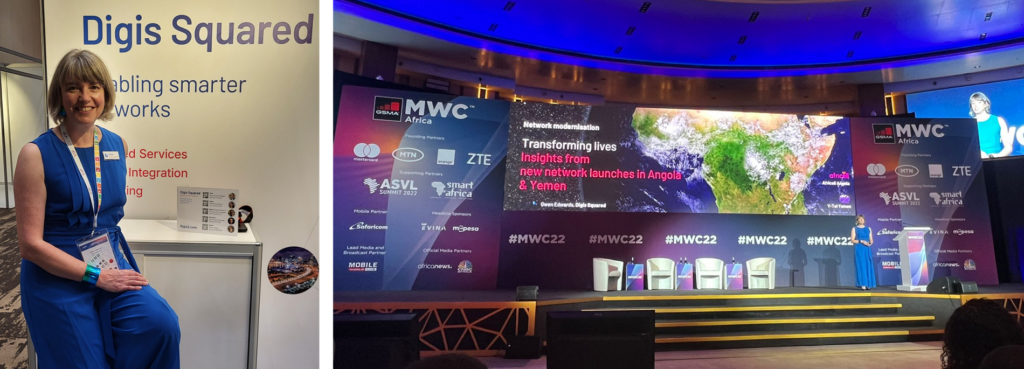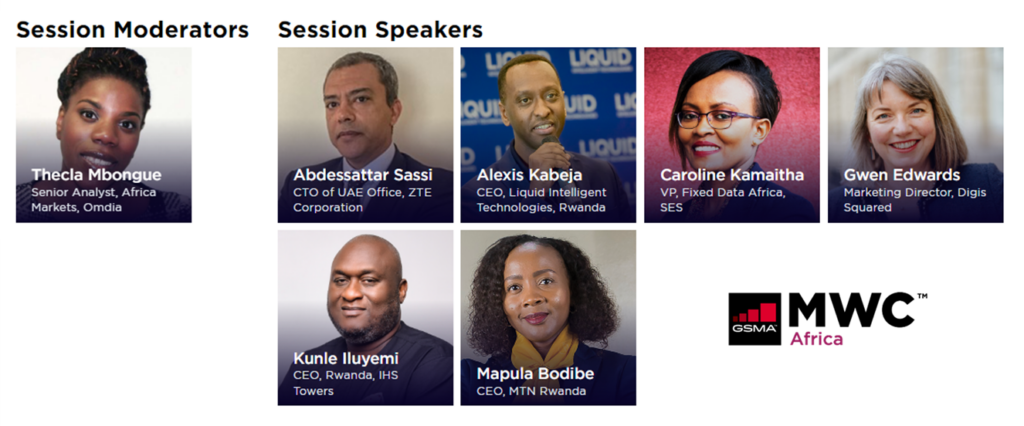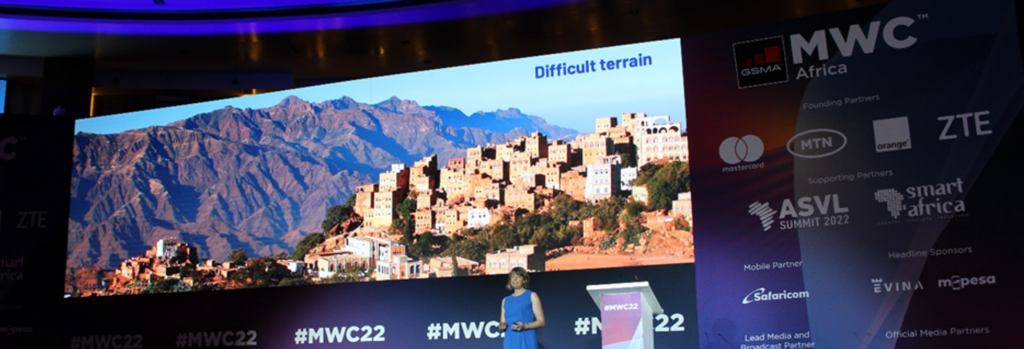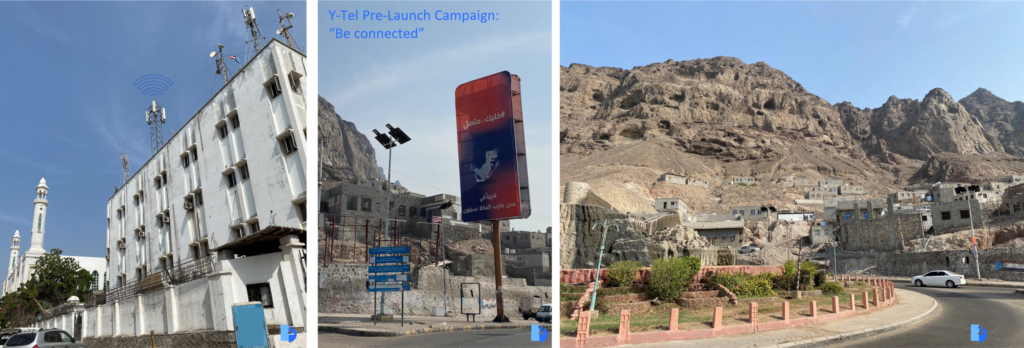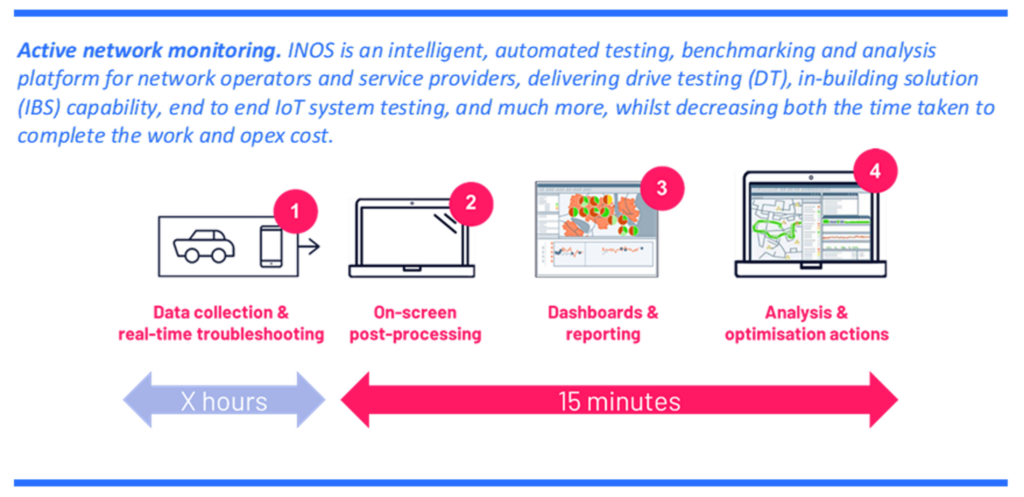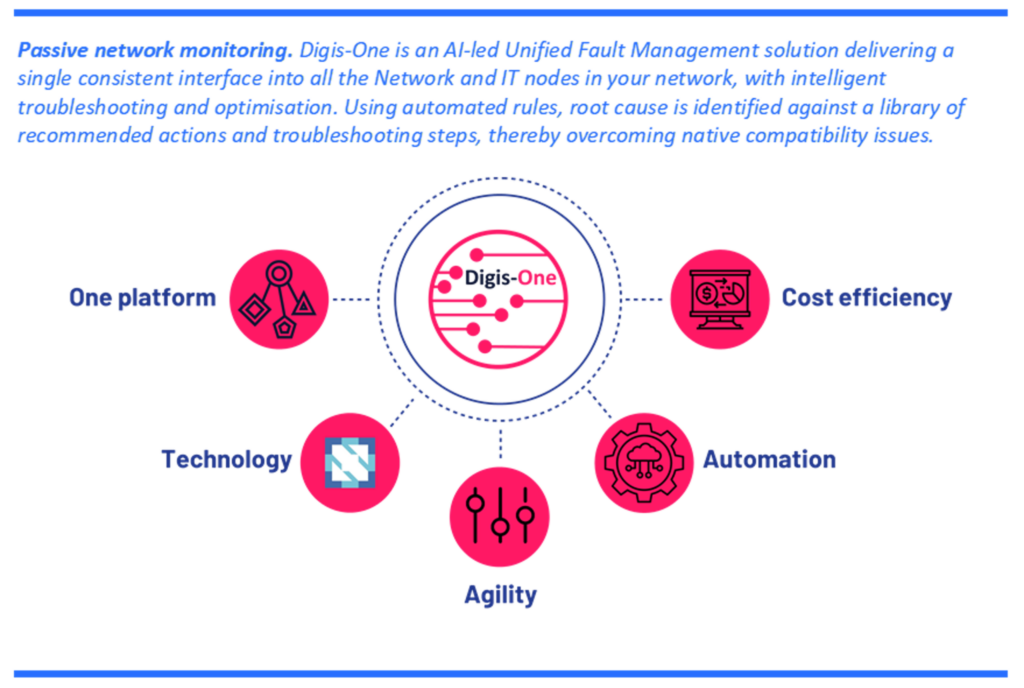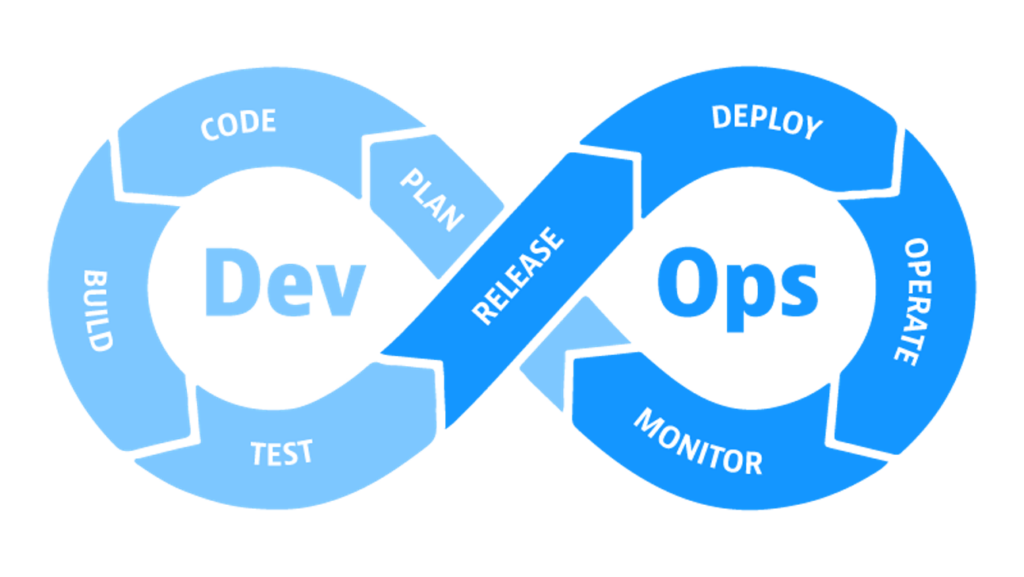Transforming lives: This blog post provides a transcript of, and images from, the presentation made in the main auditorium at MWC Africa by Gwen Edwards, Marketing Director at Digis Squared. Presented in the Network Modernisation session on Day One of the conference, 25th October 2022.
The presentation focuses on two key Digis Squared Managed Services projects.
MWC Africa 2022 – Network Modernisation session
Main auditorium, Kigali Convention Centre, Day One of the inaugural MWC Africa.
“With the ever-evolving and rapid advancements in technology, network transformation will be key for delivering next generation services. How are communication service providers across Africa, enhancing their capabilities to offer seamless connectivity and better digital experiences to their customers? How are they utilising cloud, virtualisation and AI to address the challenges of the region, from usage gap to decarbonisation? Join us as we answer some these questions, while also exploring Open RAN ambitions and the steps needed to prepare the network for web3.”
Transforming lives: Insights from new network launches in Angola & Yemen
Thank you, I’m delighted to join you here today.
I’ll be sharing insights into some of our recent projects transforming and launching new networks in Yemen and Angola, and how these projects are transforming lives.
About us
Digis Squared is an independent UK company, focused on Managed Services, System Integration, and Consulting.
We’re 6 years old, and our senior staff have worked in the telecoms sector for decades for vendors and operators.
We develop our own vendor-agnostic AI tools in-house, have strong processes, and about 200 staff across Africa and the Middle East.
And we’re the only non-Network Equipment Manufacturer delivering end-to-end Managed Services.
Similar, very different
The projects I’m sharing today focus on two operators, covering end-to-end managed services from pre-launch through to full launch and network operations.
Angola and Yemen have geographically challenging topography, plus their own logistical and societal complexities.
The projects are similar and very different.
Both projects delivered real change and transformed connectivity for communities.
Aden, Yemen
This is Aden, in the southern tip of Yemen, looking towards the Presidential Palace over on the left with the flag. Behind the white barriers in the centre is the football pitch.
Many of the photos I’m using today have been taken by our staff. We want to share with you a sense of place and insights into our projects and what we’ve achieved.
Yemen is complex
Before the conflict in Yemen, telecoms was second only to oil and gas in generating revenue and foreign currency for the government.
After almost 8 years of conflict, over 23 million people need humanitarian assistance, and
over 5 million are displaced.
In such a disrupted society, the need for reliable communications between families and communities is vital.
But, the networks supported only legacy 2G voice and text messages – no WhatsApp, no email, no search, no apps, no interconnect, and no roaming. With incredibly limited and patchy coverage, and significant network instability there was almost no mobile data, and even person-to-person calls were unreliable, making it very difficult to keep in contact with loved ones inside the country and internationally.
Difficult terrain
As part of the country’s re-construction mega-project, the Yemeni Government in Aden assigned 4G licenses to Y-Tel.
Digis Squared won a competitive tender and was selected to deliver the entire major transformation program. The old 2G legacy systems were dramatically upgraded to best-in-class, cloud-based solutions – 4G at launch, with 5G ready elements.
I’m worried I’ve made that sound easy! The local Digis Squared team on the ground in Yemen used our processes and AI tools to assess what was needed, and working together with our remote teams, they defined the strategy and services, co-ordinated and selected vendors, and managed contracts, logistics and warehousing. They used our smart network planning tools, managed the physical network rollout and optimization, the back and front office implementation, network commissioning and dimensioning, everything through to network operations. We worked together with Y-Tel, the Ministry of Telecommunications in Aden, and the GSMA to drive delivery of the new network.
As part of this huge program, we established a NOC in our Cairo GNOC to ensure operational excellence and resilience. And we continue to carefully balance local and remote skills by investing in on-site training for a new generation of Yemeni engineers.
Re-calibrating an over-used term: digital transformation
We have entirely transformed the capability, stability and capacity available, and delivered every element of the new 4G network for Y-Tel.
The Digis Squared Operations Team in Yemen have been enormously committed to the project, working in very difficult environments, 24 hours a day to achieve key targets within specific windows.
I would like to publicly thank them and acknowledge the impact their work will have on connectivity between communities in Yemen.
In June this year, we completed the on schedule first call, and the first 4G data connection, and the first ever mobile video call in country. These are massive milestones for our client Y-Tel and the local Digis Squared Team in Aden.
It is hard for us now, in this room here in Kigali, to imagine or remember life without mobile connectivity. The certainty that you can phone a loved one, and so much more: the ability to place an order via your phone, to send a photo to a friend, to make a video call and check your Dad is ok – we take all of this for granted.
The impact the project will have on the people of Yemen is hard to express. This project in Yemen re-calibrates the term ‘digital transformation’. The connectivity we are delivering for Yemen will truly transform lives, and improve the functioning of society.
Be connected. Be fast.
The “first calls” made in June mark the start of network operations and pave the way for the phased roll-out of infrastructure and portfolio of customer services.
The Y-Tel pre-launch marketing campaign is underway, and focuses on simple, straightforward commitments: be connected, be fast.
As the only non-Network Equipment Manufacturer delivering end-to-end Managed Services for mobile networks, this project in Yemen is very significant for the Digis Squared team.
If we can do this in Yemen, we can do this anywhere.
Luanda, Angola
Turning now to the second half of the presentation: Angola on the southwest coast of Africa. A very different place, but with some surprising similarities in population size and age. Civil War-ravaged Angola for 27 years until it finally ended in 2002.
Africell’s mission
In January last year, 2021, Africell won a competitive international tender for a telecoms license. Their mission was simple: to provide innovative, affordable and reliable mobile services, and lead a digital transformation in Angola – a country which has experienced decades of stasis and under investment in the mobile sector.
Fast forward to November last year: after a competitive international tender, Africell awarded Digis Squared a multi-year contract to provide end to end Managed Services to support their launch.
We moved fast. We created a local legal entity, set up an office, and in just one month mobilised and hired forty-four engineers, from Angola locally and across Africa.
Digis Squared has worked with Africell Group in other OpCos – in DRC, Sierra Leone and The Gambia, plus Uganda in the past – delivering enhancements to radio, core and VAS.
In Angola the end to end Managed Services contract covers everything from field to full NOC, all aspects of Radio, Core, BSS, VAS and field managed services, across the entire brand new network.
In April this year, the Africell Angola 4G mobile network went commercially live. Within 6 months Africell Angola had over 5 million subscribers. This is a significant success together for Africell and Digis Squared, and a significant transformation in service for subscribers.
5G boost to economy & innovation
In July, just 4 months after launch, we supported Africell in publicly demo’ing 5G for the first time in Angola, reaching speeds of 1 gigabit per second.
Angola has one of the most advanced economies in sub-Saharan Africa, and the future rollout of 5G and private networks has the potential to boost the economy, drive innovation, security and performance even further.
Working together, we are looking forward to enabling that future 5G transformational capability.
Connecting communities
Today, network rollout is progressing and soon Africell Angola will expand to include cities and regions outside Luanda.
This project has been technically complex in scale and ambition, but the impact on people’s lives, and the ability to deliver change is very real.
Mobile services in Angola have never been faster, lower cost or more reliable.
Making change happen, together
Africell launched services in Angola in April this year with a promise to shake up the telecoms sector and lead a nationwide digital transformation.
As the first new mobile operator in almost two decades, the introduction of fresh competition has already led to improved network quality and security, reduced prices and increased consumption, and is delivering benefits for digital inclusion, education and healthcare.
Whilst Digis Squared has worked in over 25 countries in Africa and the Middle East, this project was our first in Angola, a new country and culture for us, and Africell.
Investing in the local team, using our solid existing processes and automated AI tools, balancing expertise in country, with experienced staff in our other offices when needed, we’ve been successful in setting up and delivering quickly, and delivering on schedule.
Africell Angola promised to change and make change happen, and together, we’ve done that.
Conclusion
And what have we learnt from these projects?
- Working in an almost war-zone is hard, but can be done.
- Finding balance between staff in country, and a remote GNOC helps ensure stability, robustness and continuity.
- Clear focus on aligned mission, and trust in working together is vital to success.
- Building strong local teams, and investing in and enhancing skills, competence development and training, is really important to the way in which we work, and a clear commitment from the Digis Squared team to the project, the client, and the country we are working in.
- In such a competitive market we are the only non-Network Equipment Manufacturer delivering end to end Managed Services, covering preventive and corrective maintenance in the field, up to full NOC including core, billing, charging and VAS.
When we are driven by the power of connecting people, together we can achieve anything.
With thanks to Africell, and Y-Tel.
As presented by Gwen Edwards, Digis Squared’s Marketing Director, at MWC Africa 2022.
Discover more
- This blog post is also available as a standalone white paper.
- Session speakers: GSMA.
- Images from slides 1, 2, 3, 6, 14, 15, 16, 17 are commercially licensed.
- Cable: data connectivity pricing. A global study by Cable.co.uk in July 2022, found that mobile data in Yemen is the fifth most expensive per GB globally, at over 16 $/GB. (Of the 20 tariffs they assessed, the most expensive was over 43 $). Data source also for Angola.
- Yemen & GSMA Mobile Connectivity Index 2014, and 2021. The GSMA Mobile Connectivity Index measures the performance of 170 countries – about 99% of the global population – against key enablers of mobile internet adoption: infrastructure, affordability, consumer readiness, and so on. The index has Yemen at 159th globally in 2021 (11th from the bottom), and a drop on 2014 – giving an indication of the impact the ongoing conflict has had on telecom infrastructure. When we consider GSMA’s Mobile for Development measure for “meaningful connectivity”, Yemen is at the bottom of the scale.
About Digis Squared
Managed Services, System Integration & Consulting.
We transform telecom networks, deploy new technologies, and manage vendors, for network operators, service providers and regulators. Apply our vendor-agnostic expertise, automated AI-led tools and processes to transform your technical and commercial capabilities. We work with agility, deep experience, and our in-house cognitive tools to optimise and manage multi-vendor networks across all technologies.
Headquartered in the UK, Digis Squared has offices in Angola, Egypt and UAE.
Digis Squared ◦ Enabling smarter networks.











